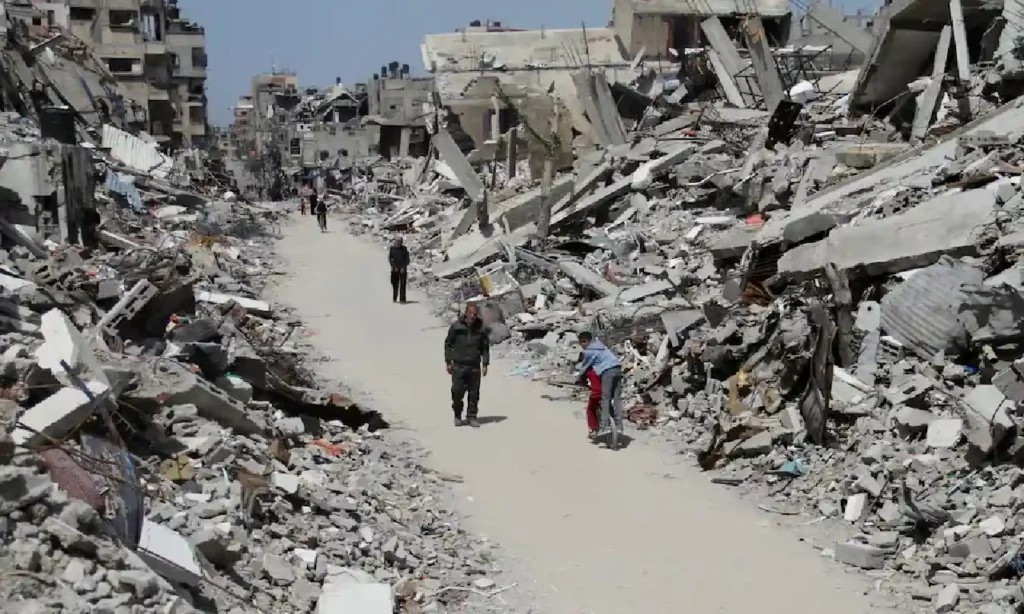Introduction:
The longstanding alliance between the United States and Israel faces a critical juncture as tensions escalate over the recent assault on Rafah, a Palestinian enclave in the Gaza Strip. What began as a localized conflict has now morphed into a diplomatic crisis, exposing deep-rooted divisions over the Israeli-Palestinian conflict and prompting soul-searching within both nations. As the international community watches with bated breath, the rift between the U.S. and Israel threatens to undermine decades of strategic partnership and cooperation. Against the backdrop of mounting civilian casualties and widespread devastation in Rafah, calls for accountability and justice reverberate across the globe, amplifying the urgency of finding a sustainable solution to the crisis. The Biden administration’s intensive public and private campaign to forestall Israel’s assault on Rafah has become its toughest test to date with its Middle East ally. Hours after President Biden on Monday warned Israeli Prime Minister Benjamin Netanyahu against a full-scale assault on Rafah, Israel’s military conducted what it called targeted airstrikes in the eastern part of the city and sent in tanks as it seized the enclave’s border crossing with Egypt.
The Rafah Assault:
The recent assault on Rafah, launched by Israeli forces in response to rocket attacks from Palestinian militants, has sparked outrage and condemnation from across the globe. The violence, which claimed the lives of civilians on both sides, has reignited long-simmering tensions and raised fears of a broader escalation in the region. While Israel cites security concerns and the need to defend its borders, critics argue that the disproportionate use of force and civilian casualties warrant international intervention and accountability.
U.S. Response:
In a departure from previous administrations, the Biden administration has adopted a more critical stance towards Israel’s actions in Rafah. President Biden, while reaffirming the U.S.’s unwavering support for Israel’s right to self-defense, has called for restraint and de-escalation, urging both parties to pursue dialogue and a peaceful resolution to the conflict. The decision to withhold military aid to Israel pending a review of its use of American-made weapons has further strained relations between the two allies, signaling a shift in U.S. policy towards the Israeli-Palestinian conflict.
Israel’s Reaction:
Israel, long accustomed to unconditional support from its closest ally, has reacted with dismay and frustration to the Biden administration’s response. Prime Minister Naftali Bennett, facing domestic pressure to take a tough stance on security issues, has dismissed criticism of Israel’s actions in Rafah as unwarranted interference in its internal affairs. Despite assurances of continued cooperation with the U.S., there are growing concerns within Israel’s political establishment about the implications of strained relations with its most powerful ally.
Implications for the Region:
The widening rift between the U.S. and Israel has significant implications for the broader Middle East region. As traditional alliances are tested and recalibrated, other stakeholders, including Iran, Hamas, and regional powers like Saudi Arabia and the United Arab Emirates, may seek to exploit the rift for their own strategic interests. The absence of a unified approach to the Israeli-Palestinian conflict could embolden hardline factions and undermine efforts to revive the peace process, further destabilizing an already volatile region.
Path to Reconciliation:
Amidst the escalating tensions, there remains a glimmer of hope for reconciliation and dialogue between the U.S. and Israel. Both nations share a deep-seated commitment to democratic values, security cooperation, and regional stability. By engaging in frank and constructive dialogue, addressing mutual concerns, and reaffirming their shared strategic interests, the U.S. and Israel can chart a path towards reconciliation and cooperation, restoring trust and solidarity in the face of common challenges.
Conclusion:
The widening rift between the U.S. and Israel over the Rafah assault underscores the complexities and sensitivities surrounding the Israeli-Palestinian conflict. As both nations grapple with diverging priorities and strategic imperatives, the need for dialogue, empathy, and compromise has never been more urgent. By reaffirming their shared commitment to peace, security, and stability in the region, the U.S. and Israel can transcend their differences and forge a stronger, more resilient partnership for the future.




